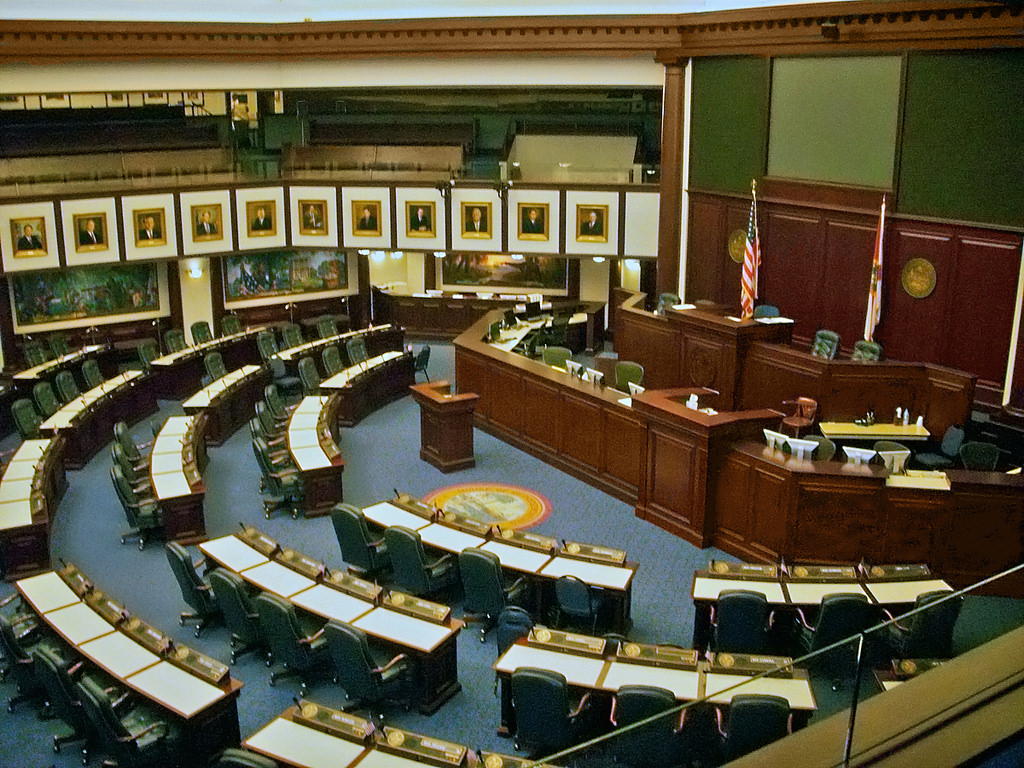
Welcome back to the Impact Zone, Surfrider’s series dedicated to all things legislative session for Florida’s ocean, waves and beaches. On May 5, the 2023 Florida legislative session came to a close. Over the course of the legislative session, thousands of bills were filed and less than 400 passed both chambers, with many bills still awaiting final gubernatorial action by the end of June. Put simply, this session has been difficult. The will of the supermajority moved in full and concerted force to pass measures that will irrevocably impact Floridians for generations to come. All while welcoming a new class of legislators in the aftermath of and actively recovering from not one, but two devastating hurricanes. Here’s a recap of the good, bad and ugly from the 2023 Florida Legislative Session.
The Good
HB111 - Flooding and SLR Vulnerability Studies - This bill authorizes Resilient Florida funds to be used for permitting and feasibility studies for nature-based solutions and expands the geographic area where publicly funded construction projects require a sea level rise impact projection (SLIP) study. This bipartisan bill passed and marks another step toward more resilient coastlines.
HB1489 - Designation of Brevard Barrier Island as Area of Critical State Concern - Florida’s explosive growth has led to grave coastal squeeze and degradation of the state’s beach habitats and coastal resources. To protect internationally significant sea turtle nesting habitat, the legislature passed a bill that would provide additional protections from irresponsible and unfettered development in Brevard County. This bill is a win for the barrier island and growth management in sensitive coastal areas.
Energy + Climate Caucus - In January, House Democrats announced the establishment of a caucus devoted entirely to addressing root causes of the climate crisis in the Sunshine State. The coalition will, “...advocate for policies that combat climate change, reduce fossil-fuel dependence, and promote clean-energy production.” A big step forward in a state that is already feeling the effects of climate change.
SB1240 / HB1197 - Land + Water Management - This much discussed preemption bill didn’t move one inch forward this session. The legislation would have preempted all local water quality measures and pollution control to the state and would have held local governments hostage financially for noncompliance. While it was not placed on the agenda this year, we will remain vigilant and expect this bill will be refiled next year. Given the recent Sackett decision it is more important than ever that we preserve local government’s rights and efforts to protect wetlands.
Budget
Resiliency Funding - Building upon groundwork of recent sessions, there is $300 million in the state budget for the Resilient Florida Program to assist local governments with vulnerability assessments and adaptation planning and implementation. With expansions to the program in HB111, this funding can now help make nature-based climate solutions a reality.
Managed Retreat Funding - Yup, you read that correctly. For the first time, managed retreat is in the Florida budget. Specifically (and more accurately), $5 million is slated for a buyout project in St. John’s County. While there are many ways in which this process can be refined and improved to reflect the nuanced and strategic planning needed for true managed retreat, this marks a step in the right direction toward more honest discussions about climate and adaptation in Florida.
The Bad
‘Session of Sprawl’ - A series of bills were introduced (and passed) this session that make it easier to pave Florida’s natural landscapes with reckless development while limiting citizen’s ability to intervene and gutting home rule. The worst offender of many bills in this category is SB540 Local Government Comprehensive Plans which makes it all but impossible to challenge poorly planned development and sprawl, and may endanger the multi-billion dollar effort to restore America’s Everglades.
HB1191 - Use of Phosphogypsum - Florida’s water quality issues are widely acknowledged, with ongoing efforts to address the most pervasive forms of nutrient pollution that can trigger harmful algal blooms with ecosystem and economy-wide impacts. Given the current efforts to remediate stormwater runoff and pollution, a bill that would allow for the use of phosphogypsum, the radioactive byproduct of fertilizer, to be used in a ‘demonstration study’ in road construction is counterproductive to any and all efforts to clean up Florida’s waterways. This devastating bill countered little resistance with the supermajority and passed. Surfrider will continue to monitor the implementation of this bill and vehemently opposes the use of radioactive waste in road construction, and ultimately in our local communities and waterways.
Budget
Public Funds for Coastal Armoring Slated to Extend into Next Year - A funding program enacted under SB4-A, the hurricane recovery bill passed by the legislature during the 2022 special session, the Hurricane Restoration Reimbursement Grant Program provides funds to homeowners for activities to remedy coastal erosion from Hurricanes Ian and Nicole. Reimbursable activities include sand placement and temporary and coastal armoring. While this unprecedented program was set to expire on June 30, 2023, the proposed budget would extend this program for the next fiscal year. Surfrider opposes this egregious misuse of public funds and its harrowing implications for our beaches, and urged the Governor to veto the expansion of this program in the FY23-24 budget.
Local Fertilizer Ordinance Prohibition Proposed - Surfrider’s chapter network in Florida has led and supported many of the more than 100 municipalities and counties that have restrictions on fertilizer application and use as a cost-effective water pollution control measure. At the 11th hour of the budget process, a provision was included in the implementing budget bill that would prohibit local governments from amending or adopting new fertilizer ordinances for the next fiscal year. While it would not affect ordinances adopted by June 30, 2023, it effectively hamstrings local governments from protecting their respective waterways. Surfrider has urged the Governor to veto the appropriation in the budget linked to this language, and continues to support local government efforts to ensure clean water.
While the ultimate outcome of the legislative session is always a mixed bag, Surfrider’s network has been working diligently to establish the voice of Florida’s ocean, waves and beaches in Tallahassee after a hiatus during the pandemic. Staff and volunteers participated in over 50+ meetings with state legislators and their staff over the course of the legislative session, testified during county delegation meetings, participated in action alerts and legislative briefings, made countless phone calls and more than 30 advocates made the trek to the Capitol to advocate for Florida’s beaches and waterways for Florida Healthy Beaches Day. Surfrider is forging bipartisan support in Tallahassee for clean water, coastal resilience, and plastic pollution reduction and plans to build on this momentum moving into the 2024 session.
